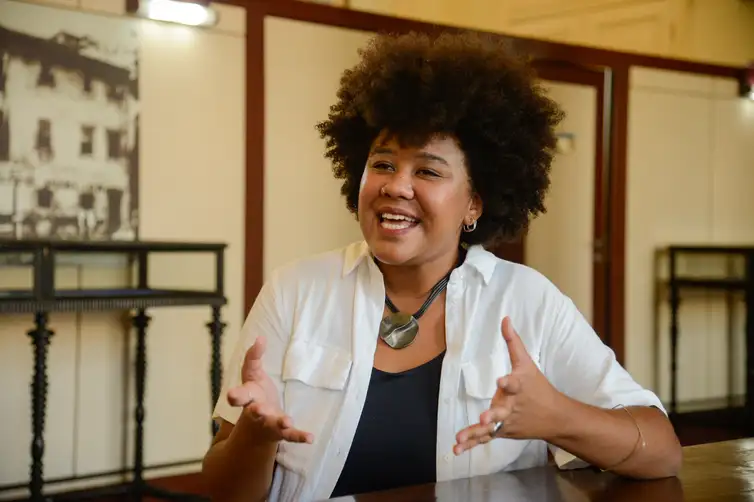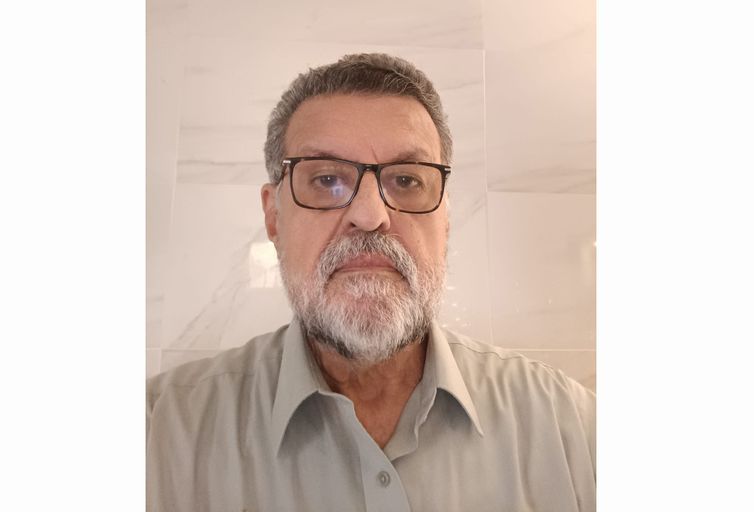The Golden Globe, for actress Fernanda Torres, once again drew attention to the film that has been breaking box office records and being successful both in Brazil and abroad. The award for best actress in I’m Still Here It occurs in the week in which the coup acts of January 8, 2023 complete two years. If, on the one hand, the acceptance of the film shows the population’s interest in what happened during the dictatorship and the importance of preserving memory and reparation to victims and families for crimes committed during the period, recent acts are, according to experts interviewed by the Brazil Agencyproof that Brazil still lives in a fragile democracy.
For historian Gabrielle Abreu, the film offers the opportunity for Brazilian society to discuss the dictatorship through art. “I think we are experiencing a very special opportunity to be confronted collectively, as a society, with this topic and through art, culture, and a personality like Fernanda Torres, which makes it much easier for the topic to be debated and disseminated ”, says Abreu, who has a master’s degree in comparative history from the Federal University of Rio de Janeiro (UFRJ). Worked at National Archives and is the current Memory Manager at the Marielle Franco Institute.
I’m Still Here tells the story of the Paiva family, who in 1971, with the hardening of the military dictatorship, had to face the disappearance and murder of Rubens Paiva, a civil engineer and Brazilian politician. The story is told from the point of view of the person who remains, his wife Eunice Paiva, played by Fernanda Torres.
For Gabrielle Abreu, the film has an important function: “It has this social function, this social role of teleporting us to that time and making people reject that period, get to know it, understand a little why today we face these successive attacks on democracy and begin to reject the period, the idea of a dictatorship, of authoritarianism, of censorship, of limitation of rights and, naturally, that this inspires in us, in Brazilian society, a sense of appreciation for democracy”, he argues.
Denial of the dictatorship
The challenges, however, are still many. According to historian Renata Melo, who is general director of the Regional Section of the National History Association (ANPUH) in the Federal District and vice-coordinator of NEAB – Center for Afro-Brazilian Studies at the University of Brasília (UnB), the impacts of the dictatorship come being denied by part of the population that praises it. The undemocratic act of January 8, 2023 was one of the materializations of this thought.
“In recent years, we have experienced a repeated denial of historical facts that happened in Brazil, which brings negative results for a large part of society, even for those who did not understand, did not experience that historical moment, which was the dictatorship and the impacts that caused in society,” he says.
According to Melo, the film “brings to light a memory and a part of society that still fights for it not to be remembered and even denied. Deny that the dictatorship happened, deny the negative impacts of this dictatorship on several families, deny, including, in quotation marks, those seen as subversive, as happened with that family, with the disappearance and everything that impacted their trajectory”.
Abreu adds: “We live in a country that deals with certain difficulties in relation to recent and more distant memories, from a temporal and chronological point of view. So, even though we are still very close to the period of the military dictatorship, just a few decades since the formal end of the regime, we still live in a society with remnants, with several legacies of this dictatorial past. And all of them are very harmful, very negative and hinder the advancement of our democracy, the health of our democracy, given the recent attacks on it, which peaked on January 8th.”
Memory, truth and justice
The military dictatorship lasted from 1964 to 1985. The period in which the country was controlled by the military was marked by repression, censorship of the press, restrictions on political rights and persecution of opponents of the regime. The National Truth Commission recognized 434 deaths and disappearances during the military dictatorship. The Peasant Truth Commission also recognized the impact of the dictatorship on rural people and presented, in 2015, a report listing 1,196 peasants and supporters killed or missing between 1961 and 1988.
According to the member of the collective Filhos e Netos Memória Verdade e Justiça, Leo Alves, who makes up the executive board of the Coalizão Brasil Memória Verdade Justiça Reparação e Democracia, Brazil still lacks the so-called transitional justice. According to the United Nations (UN), transitional justice is the set of processes and mechanisms related to a society’s efforts to overcome a legacy of serious human rights violations committed on a large scale in the past, in order to ensure accountability, administration of justice and reconciliation.
“Perhaps the most fundamental reparatory measure is justice, it is the conviction of serious human rights violators, agents of the State, including those involved in repression during the dictatorship and many civilians as well”, he argues. “We have no convictions for torturers and this is very bad for any country. That’s it, memory, truth, justice.”
Alves is the grandson of Mário Alves de Souza Vieira, who was a journalist and leader of the Brazilian Revolutionary Communist Party, one of those disappeared by the dictatorship in 1970. Alves grew up alongside women like his own mother and grandmother, who fought and continue to fight, as he did Eunice in I’m Still Herefor repair. “That’s what the film seeks, in a way, to portray with Eunice. That’s what Eunice is, these women who fought for amnesty [aos presos e perseguidos políticos] in the 70s and which mobilized an entire society”.
He is optimistic about the film’s impact. “My wish for 2025, from now on, is that this film opens the doors to the adequate construction of the memory of the military dictatorship in Brazil.”
Art and feelings
For historian and member of the RJ Collective for Memory, Truth, Justice, Reparation and Democracy Paulo Cesar Azevedo Ribeiro, preserving memory is important so that crimes like those committed during the dictatorship are not repeated. According to him, the coup on January 8 shows that democracy is still fragile in the country and needs to be taken care of. “We don’t exactly have a real and socially and economically fair democracy here,” he says. “We are very concerned about maintaining democracy and expanding and deepening it into a real democracy in which hunger and social inequalities are combated and we all have the right to a dignified life”, he adds.
According to Ribeiro, through art, the film made the history of the Paiva family and the discussion about the dictatorship reach places where academic works cannot. “The role of cinema, literature, poetry, music, theater is very important. We, who are researchers, historians, social scientists, produce monographs, dissertations, theses. But we have a cold language, we translate it into quantities and qualities, we carry out analyses, work hypotheses, we try to prove it with documents, interviews, testimonies. Artists achieve much more, they can move people through feelings.”



















